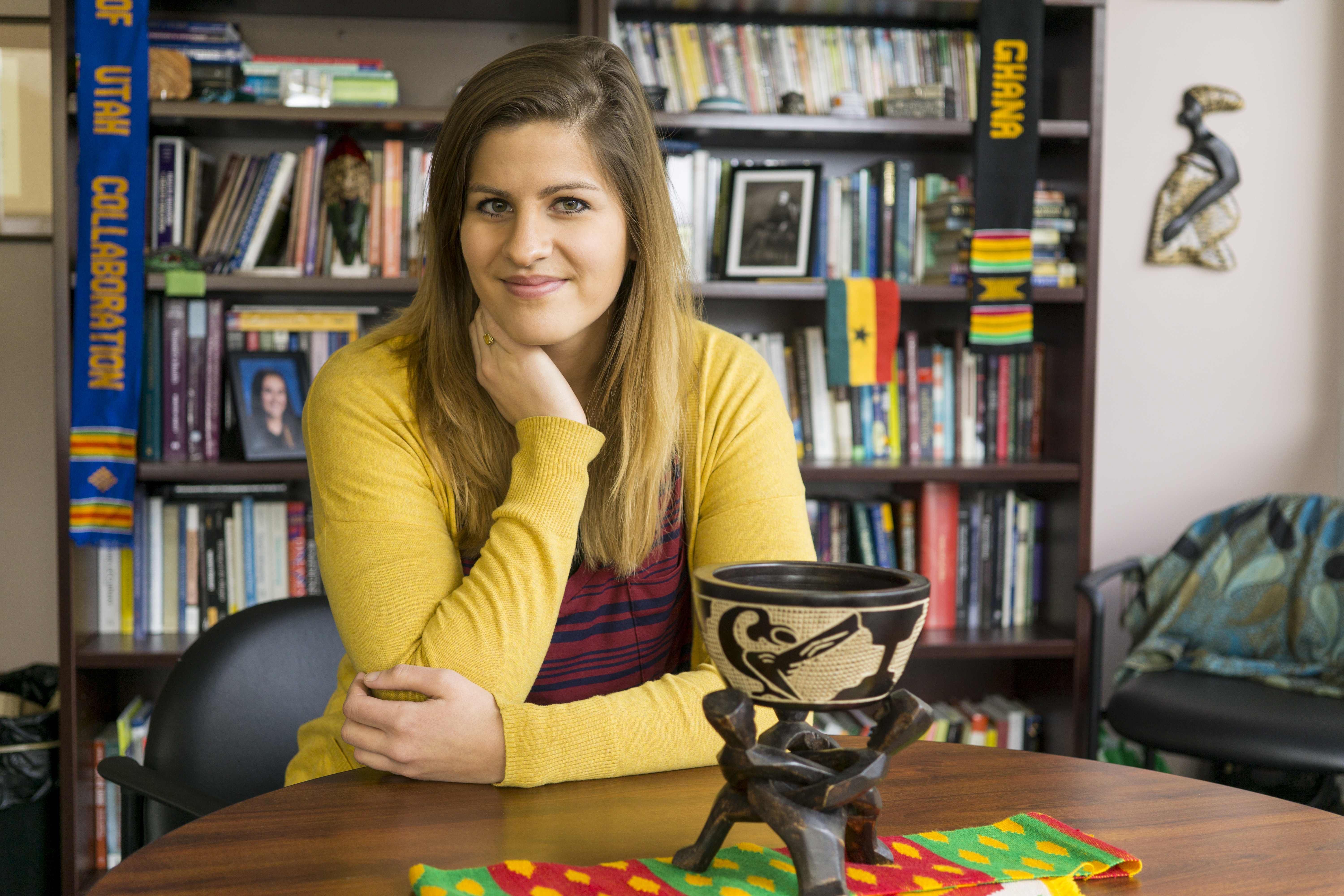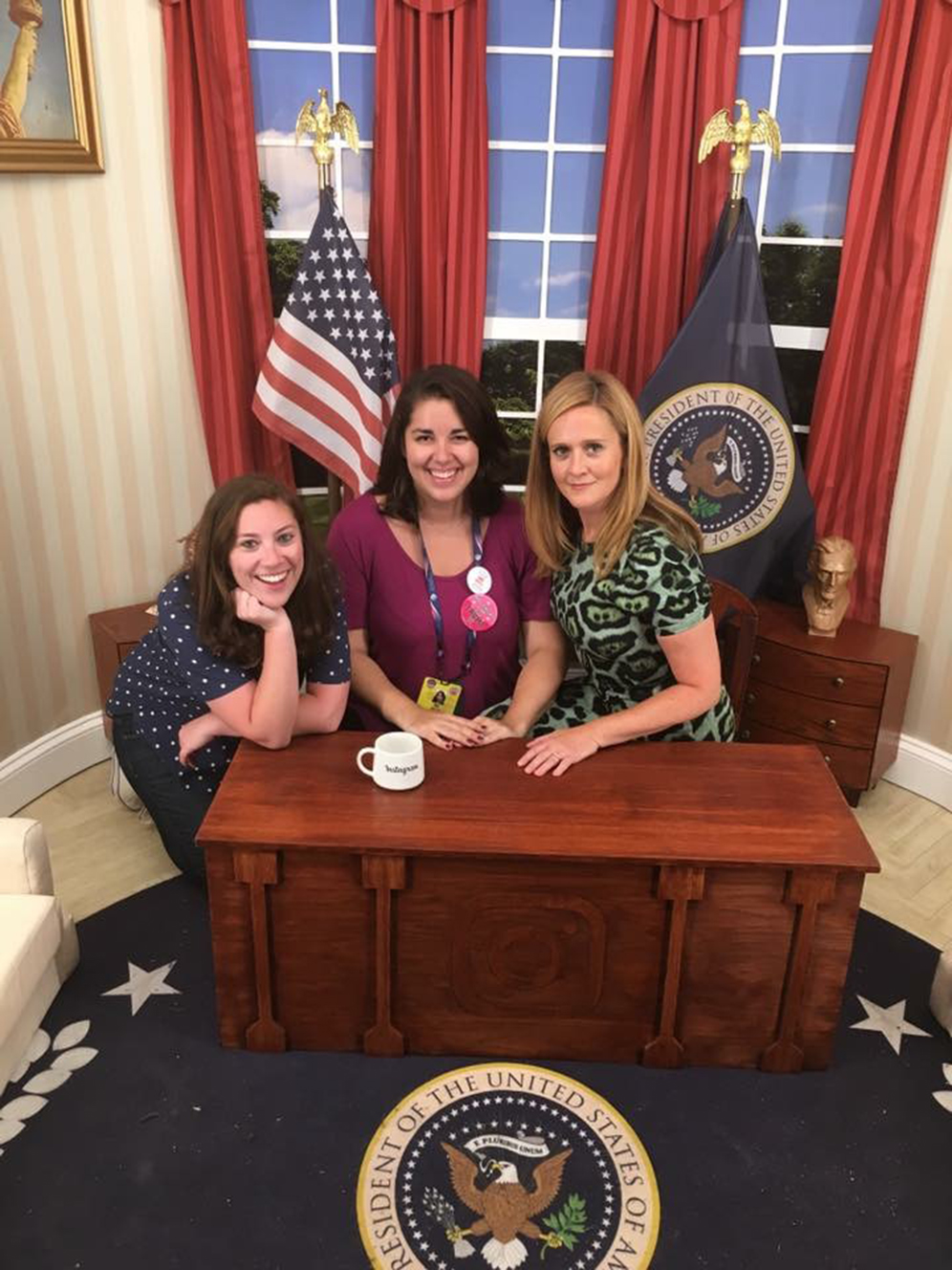
“I work with astrophysics and gamma rays. When a star is very big and it bursts, it will become something called a supernova. That’s not so interesting when you see it in normal light, but in X-rays and gamma rays you can see a lot more details. We also use gamma rays to understand what physics is going on in objects like distant galaxy cores, black holes and neutron stars.Physics is really male-dominated, and that can be hard. Women drop out of STEM fields so often for multiple reasons. That’s why our department has Women in Physics and Astronomy (WomPA). A lot of our graduate students are married, or have children, and sometimes you can’t unwind when you come home, and you can’t unwind when you come to work, and it becomes so difficult. WomPA is like a community gathering place, and just knowing there are other people going through the same difficulties as you is a big help.”
— Payel Kar, doctoral candidate in the Department of Physics and Astronomy and member of WomPA

“I lost my wallet after riding TRAX one day. I didn’t want to accept that it was gone for good and get everything replaced. I had gift cards in there that I didn’t want to give up on. Almost four weeks later, I was riding the train when a woman sitting near me asked if my name was Brent Packer. I was thinking, ‘Who is this person, and how does she know my full name?’ But then she told me she had found my wallet. I almost didn’t believe her because it seemed too far-fetched. To me, that experience was the epitome of a coincidence. She was very apologetic that she had my wallet for so long, and she had even tried to return it, but I had moved from the address on my license. The first thing I did after I got it back was keep it in a safe place for a few days. When I started using it again, I wanted to get one of those GPS trackers you can keep in your wallet, but Santa didn’t bring one.”
— Brent Packer, U student

“I’ve worked night shifts for Facilities for 40 years. I’ve always been a night person. As a kid, I would wake up in the middle of the night and try to make oatmeal cookies.
I retire at the end of the January and I’ll miss providing a service. I don’t look at it as work.
I follow my own “Golden Rule of custodial.” Which is, the cleaner you leave it as a custodian, the cleaner the customer is going to leave it for you. No one wants to be the first one to mess something up. Because there is a difference between someone trying to make a basket in a waste can and missing and that same person just leaving trash on the ground.
For the person taking my place, I would tell them to pay attention to details. Be here as much as you can be because if you let those details slide, it will take you a month of Sunday’s to bring it back up.
Being here and keeping up on the details are the most important.”
— Ray Stout, facilities nightshift custodian

“On the first day of my master of social work program I heard about a study abroad trip to Kumasi, Ashanti, Ghana, during spring break 2016. I am interested in pairing my mental health experience with working internationally so I applied immediately and got in.
The U helped Kwame Nkrumah University of Science and Technology set up a social work program several years ago. Our project was to conduct focus groups to find out how the program is going and how it could be improved.
After our focus group, students asked us about our lives. They use American and British textbooks and one student asked me why there was a chapter devoted to managing stress. She explained to me that the concept of stress as we understand it — they don’t experience that in Ghana because they live in the here and now. She also brought up anxiety and depression, which are described in the textbooks, and asked why this is such a problem. I told her we have so many expectations that we feel we can’t meet. She said, ‘Why not? Why can’t you just accept and love where you’re at right now?’ What she said really stuck with me.”
— Nicole Shaw, social work graduate student

Yessenia Sontay on the left and Ciriac Alvarez Valle on the right.
Valle: “There’s a lot of backlash when you tell your story. When you expose yourself, you also expose your family. Whether we have documentation or not, our lives matter.
Sontay: It’s valid to be scared with the negative stigma surrounding documentation.
Valle: We can’t apply for FAFSA so our education is funded through private scholarships or work. We need DACA and there are a lot of people who want it to go away.
Sontay: I’m so appreciative of DACA, but it’s not enough. I don’t want it to just be me. I want my family to feel safe, too.
Valle: Our families deserve to live without fear of deportation. Most people don’t see it because they don’t live through it. Their lives have never been at stake in this way. It’s not until they finally see a face or a person, they know that the issue becomes real.
Sontay: Just because we don’t have a piece of paper, we shouldn’t feel unsafe. A piece of paper isn’t who you are.”
— U students Ciriac Alvarez Valle, senior and Yessenia Sontay, junior

From left to right: Tzvia Berrin-Reinstein, Ana Breton and Samantha Bee at the Democratic National Convention in 2016.
“I’m a digital producer at “Full Frontal with Samantha Bee.” On a daily basis, our digital team will pitch and execute ideas for original videos, tweets and content for our social media sites. My main focus is working on original videos, most of which I produce, direct and edit. On show nights I’m in charge of building the website, SamanthaBee.com. Since the show revolves around politics, we’re also constantly finding funny and sharp ways to respond to the news – which will either become a breeze or a horrible, terrible nightmare in the next four years.
I graduated from the U with two degrees: film studies and communication. After I graduated, I worked on shooting documentaries, which I loved. Three years ago, however, I decided to move to New York (with my amazing husband, who I met at the U) to pursue comedy. I was a member of the improv/sketch group Friday Night Live at the U, and I always had a career in comedy in the back of my mind. I’m insanely lucky to have a career now that perfectly combines my two passions: videos and comedy. (My third passion is burritos.)
I’m grateful for the U for giving me the opportunity to spend countless hours editing in that one tiny room behind the film classroom. My dream is to Shonda Rhimes my way to the top and buy the U a second, even tinier editing room.”
— Ana Breton, alumna and digital producer at “Full Frontal with Samantha Bee”

“I most admire Reid’s guts and perseverance, trying to make it big in Hollywood when the odds are one in a thousand and every audition carries the overwhelming probability of rejection. I also admire his courage singing before millions of people on national television.The whole family tried out for parts in a summer play, Fiddler on the Roof. Reid made it look so easy. I struggled with my little part as the constable.”
— Reid Ewing, chair of City and Metropolitan Planning in the College of Architecture
“My dad is a professor at the U and I think that must be a great job. If I were one and that was my calling, then I would put everything I had into my job like my he does. Although my dad has had a lot of success in his field, what matters more to me is having a family member I care about. We have had a lot of goods times together.”
— Reid E Ewing, actor (Modern Family 2009-2015) and U student majoring in English

“I moved to Utah from Somalia in 1994 after my 2-year-old son and many other family members died amid the civil war.
In 1990 I graduated from Somali National University with a law degree. We had a very beautiful life — we owned an import/export business, we owned a home.
But as soon as I graduated the civil war broke out so I wasn’t able to practice. We had to flee our home due to heavy artillery fire. For the next two years, my family and I were in hiding, moving from place to place in the city. I was just surviving, trying to get food to feed my wife and two sons. We fled to a relative’s home on the outskirts of the city, joining more than 100 family members in that house.
There was no government and all the infrastructure was destroyed. Soon the whole country became chaos and everyone was killing each other and the only way to save ourselves was to leave the country. I risked my life, taking a week or so, to travel by road to Kenya and then Nairobi. I paid a pilot to transport my wife and surviving infant son from Somalia to Nairobi.
We were the first Somalian family to settle in Utah. It was a cultural shock — the weather, the food, there was no place to worship. It was very challenging. But it didn’t matter because we knew we were in a safe place and could start a new life.”
— Aden Batar, director of immigration and refugee resettlement for Catholic Community Services of Utah, MPA graduate ‘15
